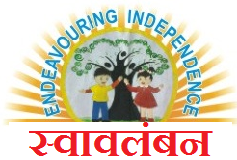World Water Day is celebrated on 22 March every year.
It’s a day to celebrate the very essence of our life i.e.water. It’s a day to make a difference for the members of the global population who suffer from water related issues. It’s a day to prepare for how we manage water in the future.
Water is at the core of sustainable development. Water resources, and the range of services they provide, underpin poverty reduction, economic growth and environmental sustainability.
From food and energy security to human and environmental health, water contributes to improvements in social well-being and inclusive growth, affecting the livelihoods of billions.
According to the World Water Development Report, demand for water around the world will increase by 55% over the next 15 years. With current supplies, that means only 60% of the world’s water needs will be met in 2030.
The reason for the shortfall include climate change, which causes irregular rainfall and dwindling underwater reserves. The results of the shortage could be devastating to agriculture, ecosystems and economies. With less water, health could also be compromised.
United Nations emphasized on educating people about 7 aspects of water and related habits which helps in preserving water.
These are:
1. Water is essential to human health. The human body can last weeks without food, but only days without water. Water is essential to our survival. Regular hand washing, is for example one of the best ways to remove germs, avoid getting sick, and prevent the spread of germs to others.
2. Ecosystems – including, for example, forests, wetlands and grassland – lie at the heart of the global water cycle. All freshwater ultimately depends on the continued healthy functioning of ecosystems, and recognizing the water cycle is essential to achieving sustainable water management.
3.The world’s cities are growing at an exceptional rate – 4 people moved to cities.Thousands of kilometres of pipes make up each city’s water infrastructure. Many antiquated systems waste more freshwater than they deliver.
4.Global water demand for manufacturing is expected to increase by 400% from 2000 to 2050, which is much larger than other sectors. The main increases will be in emerging economies and developing countries.
5. Water is required to generate energy. Energy is required to deliver water. Renewable energy comes from resources which are naturally replenished such as sunlight, wind, rain, tides, waves and geothermal heat. These do not require large quantities of fresh water.
6. Irrigation takes up to 90% of water withdrawn in some developing countries. Globally, agriculture is the largest user of water, accounting for 70% of total withdrawal.
7. In developing nations the responsibility for collecting water every day falls disproportionately on women and girls. On average women in these regions spend 25 percent of their day collecting water for their families.
Take a pledge to Save Water Now…
Every Drop Counts…
PP
in.linkedin.com/in/swavalambanrehab
facebook.com/swavalambanchildrenrehab




